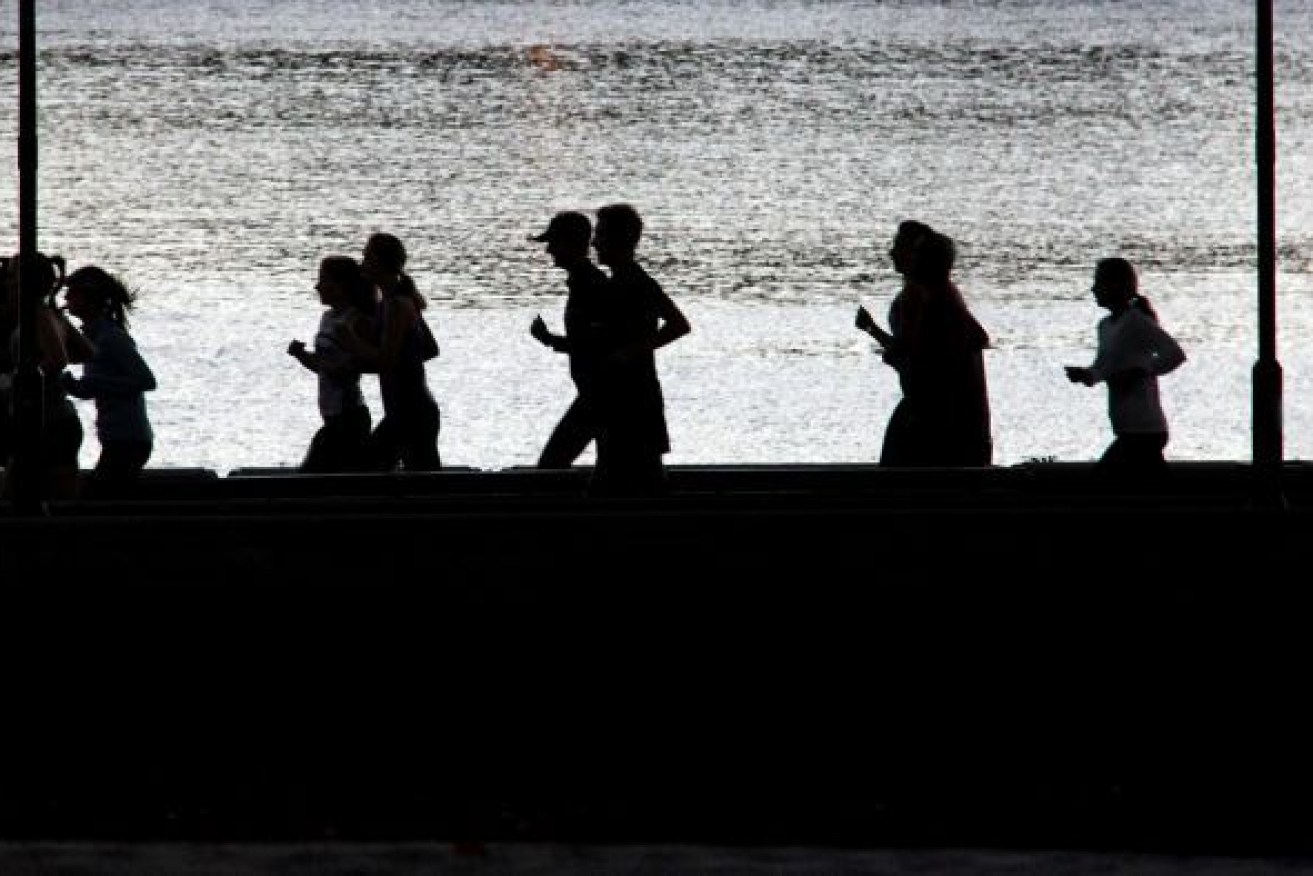Queensland study finds WHO fitness guidelines way off

Queensland study finds Australians are not doing enough exercise. Photo: supplied
People need to do five times the exercise recommended by the World Health Organisation to stay healthy, a Queensland study has found.
But a leading public health expert argued that without “completely restructuring our society”, the activity levels – which require almost three hours of walking or an hour of running every day – are “unachievable”.
And with 50 per cent of Australians not even achieving the current World Health Organisation (WHO) recommendation of 30 minutes of activity a day, he said the country should focus on getting people off the couch for half an hour instead.
Researchers from the University of Queensland studied the link between physical activity and chronic health conditions including breast and bowel cancer, diabetes, heart disease and stroke.
They found exercise levels recommended by the WHO needed to be much higher – five times higher – to increase resistance.
Researcher Dr Lennert Veerman said the WHO recommended physical activity of 10 metabolic equivalent (MET) hours a week.

Lift your game!
“So that’s the equivalent of about 1.75 hours of running or two, three hours of walking briskly [a week],” he said.
“But the study found health gains accumulated up to the levels of 50 to 70 MET hours a week.
“That’s the equivalent of 15-20 hours of brisk walking or 6-8 hours of running [a week].”
Dr Veerman collaborated with researchers from the United States’ University of Washington, in Washington state, and Dartmouth College, in New Hampshire.
They analysed the results of 174 health studies between 1980 and 2016 and found higher levels of physical activity were linked to the reduced risk of chronic conditions.
“About 43 per cent of Australians adults adhere to the current WHO guidelines and we are saying they should do much more,” he said.
“So if you cycle to work, walk to work, or if you take the stairs consistently, all those sort of things add up,” he said.
“If we want to live long and healthy and reduce our waistlines, we need to do more activity.
Dr Lennert Veerman
“Activity levels for optimum health need to be able about five times the currently recommended levels.”
But University of Sydney public health professor Adrian Bauman said such extreme interpretations of required activity levels were actually counter-productive to reducing lifestyle diseases such as diabetes, heart disease, mental health disorders and breast and colon cancers.
With 50 per cent of Australians not achieving the WHO guideline of 30 minutes of activity a day, it would be more beneficial to encourage a little exercise in the first instance.
“It’s not the right public health message, and takes over from the real public health need,” Prof Bauman said.

Dr Lennert Veerman, University of Queensland researcher. Photo: UQ.
“Most of the gains (in public health) will occur from getting people to reach the minimum daily guidelines, which is half an hour.
“Rather than focus on the extreme, we need to get the couch potatoes off the couch just to reach that first half an hour a day,” he added.
The activity figure for adolescents was even worse, with 70 to 75 of that cohort failing to reach the required one hour per day.
Most people couldn’t make enough time in the week to accommodate 20 hours of activity, even including incidental exercise such as walking to school or the shops, and was unachievable without a complete rethink of the way we live, he said.
The UQ researchers have also called for a greater investment to promote physical activity.
Professor Bauman agreed, saying that the billions spent on public health campaigns, legislation and regulations aimed at tobacco had seen smoking rates fall from 45 per cent to around 12 per cent in 30 years.
And yet, our current levels of inactivity are comparable to the health risks of smoking, he said.
“We have not put anywhere near the investment into increasing and promoting physical activity among the population, and yet doing nothing is as bad as what smoking was.”
– ABC








